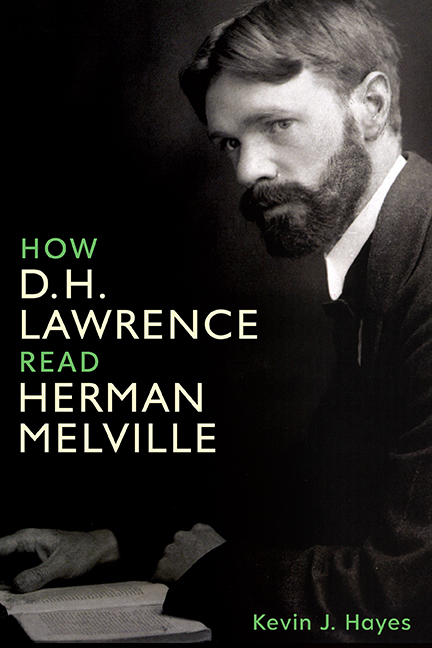Book contents
- Frontmatter
- Dedication
- Contents
- Acknowledgments
- Preface
- List of Abbreviations
- Introduction
- 1 An English Midlands Bookshelf
- 2 An Archway into the Future
- 3 Everyman and the Dead Narrator
- 4 How Moby-Dick Shaped Women in Love
- 5 A Little Hesperides of the Soul and Body
- 6 The Symbolistic All-Knowledge
- 7 The Melville Centenary
- 8 Typee under Etna
- 9 Two Days in Tahiti
- 10 The Voyage Home
- Index
1 - An English Midlands Bookshelf
Published online by Cambridge University Press: 26 May 2022
- Frontmatter
- Dedication
- Contents
- Acknowledgments
- Preface
- List of Abbreviations
- Introduction
- 1 An English Midlands Bookshelf
- 2 An Archway into the Future
- 3 Everyman and the Dead Narrator
- 4 How Moby-Dick Shaped Women in Love
- 5 A Little Hesperides of the Soul and Body
- 6 The Symbolistic All-Knowledge
- 7 The Melville Centenary
- 8 Typee under Etna
- 9 Two Days in Tahiti
- 10 The Voyage Home
- Index
Summary
Stage directions are windows to the soul. The opening stage directions to A Collier's Friday Night, D. H. Lawrence's first play, are a case in point. Describing the interior of the Lambert home, Lawrence modeled it on his family home in Eastwood, the small coalmining town in the English Midlands where he was born. Irish playwright Sean O’Casey, who thought A Collier's Friday Night proved that Lawrence had the makings of a dramatist, called his description “a fine and lively idea of an English miner's home.” Lawrence's close friend and confidante Jessie Chambers, who had often visited his home, found the stage set disturbingly close to the original.
The power of Lawrence's description stems from its naturalistic quality. One recent commentator has called the set “the real star of this play.” Although the Lambert home in A Collier's Friday Night resembles other working-class homes in the Midlands, it differs in one crucial aspect—that is, in the prominence that books hold. Understanding the role of books in the play offers the chance to understand the role of books in Lawrence's family. This approach is the starting point for learning how D. H. Lawrence read Herman Melville.
On the left side of the kitchen fireplace in A Collier's Friday Night stands a set of four bookshelves mostly filled with schoolbooks. On the right side a two-shelf faux-mahogany bookcase with a glass front stands atop a chest of drawers. In addition to some foreign language dictionaries and poetry anthologies, the lower shelf holds several “prize books”: handsomely bound and gilt volumes presented to students as rewards for scholastic achievement. The upper shelf holds “a large set of the ‘World's Famous Literature’ in dark green.” Taken together, the books suggest the cultural pretensions that will allow the new generation to aspire beyond the coal pits.
Besides the shelved books described in the stage directions, A Collier's Friday Night contains several other literary references. The play's title echoes the title of a Robert Burns poem, “The Cotter's Saturday Night.” The echo is ironic. Whereas Burns depicts the harmony of a farm laborer's family during its Saturday night meal, Lawrence portrays the conflicts within a coalminer's family on Friday night.
- Type
- Chapter
- Information
- How D. H. Lawrence Read Herman Melville , pp. 7 - 24Publisher: Boydell & BrewerPrint publication year: 2021

